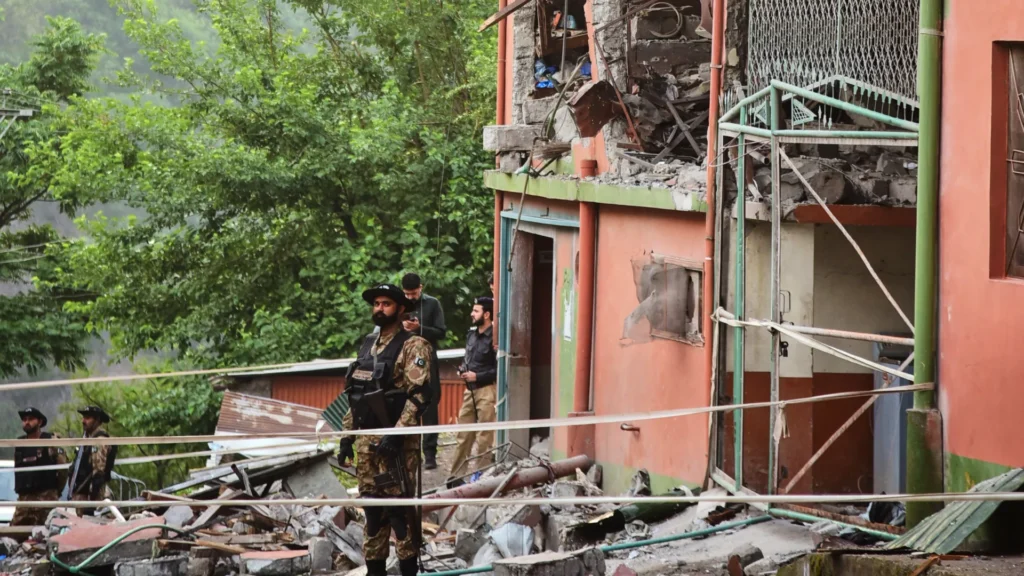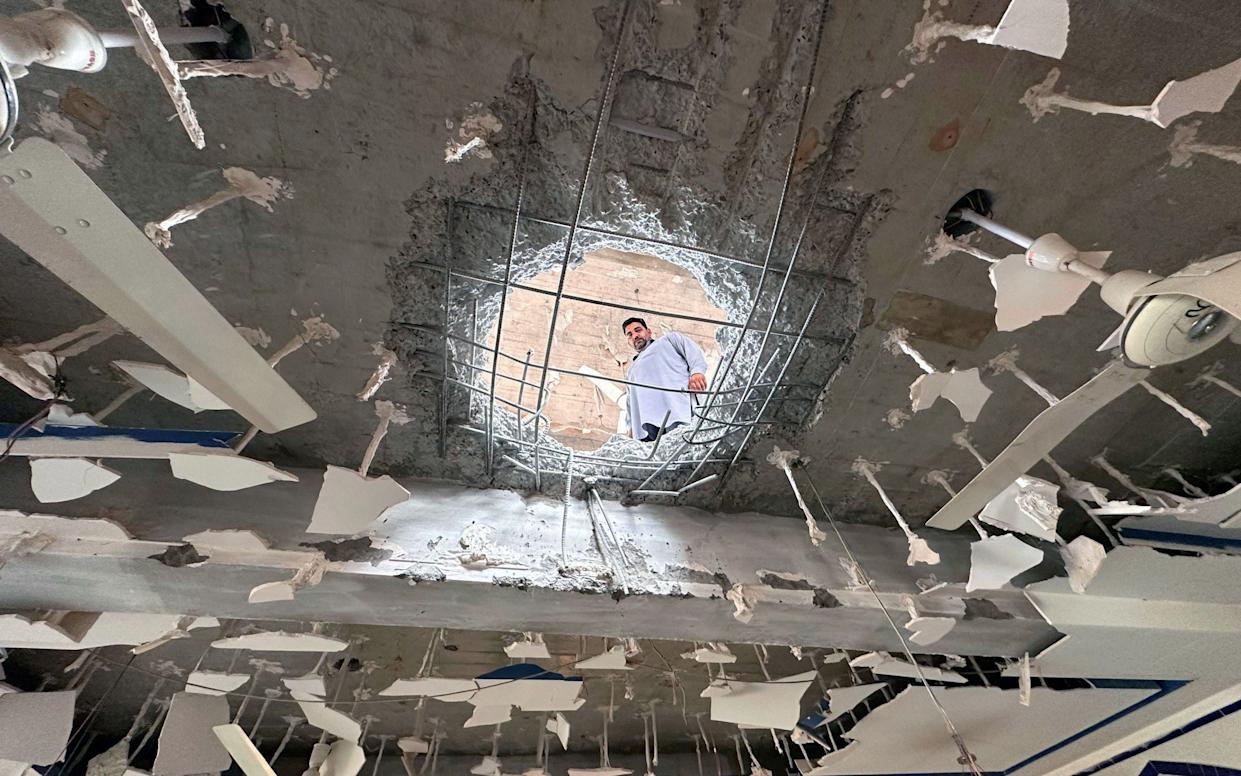Pakistan has issued a stern warning of retaliation after overnight missile strikes by the Indian Air Force killed 31 people, including civilians, in what may be one of the most volatile escalations between the two nuclear-armed neighbors in recent years.
In a televised address late Wednesday, Prime Minister Shehbaz Sharif condemned the attacks, vowing retribution. “We pledge to avenge every drop of blood of our martyrs,” he declared, as his government accused India of launching unprovoked attacks on nine sites across Pakistan-administered Kashmir and Punjab province.
India, in turn, defended its actions as a direct response to last month’s militant assault in Indian-administered Kashmir that left 26 people dead, including Hindu tourists and their guide. New Delhi blamed Pakistan-based militant outfits, long accused of operating with impunity, for orchestrating the attack.

Speaking to the Guardian, Pakistan’s Deputy Prime Minister and Foreign Minister Ishaq Dar emphasized that the country would respond decisively but responsibly. “We reserve the right to authorize any appropriate military action,” he said. “Our response will be guided by proportionality and national dignity.”
Dar refrained from specifying a timeline but confirmed that operational decisions would be led by Army Chief General Asim Munir in coordination with the civilian leadership. “There’s no fixed timeline for a response. But let me be clear—our patience is not limitless.”
He also criticized the muted response from the international community, lamenting the lack of support for Pakistan’s call for an independent probe into the Kashmir attack. “Past U.S. administrations played active roles in defusing tensions. This time, global engagement is lacking,” he said.
India claimed its strikes targeted terrorist training camps run by Lashkar-e-Taiba and Jaish-e-Mohammed, groups it holds responsible for deadly attacks on Indian soil. Indian Defence Minister Rajnath Singh stated, “We targeted only those responsible for killing innocent Indians.” Home Minister Amit Shah echoed this, saying the strikes were part of India’s commitment to national security.
Indian officials described the air raids as “proportionate and restrained.” However, Pakistan labeled the action as “unjustified and indiscriminate,” denying the presence of militant infrastructure in the targeted zones.
Significantly, Indian missiles reportedly struck Pakistan’s Punjab province for the first time since the 1971 war, killing at least 16 people there. The attacks have brought back grim memories of past conflicts, especially as the region of Kashmir—claimed by both nations—remains a longstanding flashpoint since the 1947 partition.
Following a meeting of Pakistan’s National Security Council, Islamabad’s military was given a green light to determine the time and nature of its counter-response. At a parliamentary session, Bilawal Bhutto Zardari, co-chair of the ruling coalition party, stated, “Our answer to India’s aggression is coming.”
Meanwhile, reports emerged that some Indian aircraft were downed during the operation. Pakistani authorities claimed five Indian jets had been shot down, with wreckage reportedly scattered across Indian-administered Kashmir and parts of Punjab.
Eyewitnesses in the Indian village of Wuyan described scenes of chaos as aircraft debris fell near residential areas. “I saw an aircraft engulfed in flames plummet near a school,” said Adnan Ahmad, 25. “Explosions continued for an hour.”
Heavy cross-border shelling followed the strikes, resulting in additional casualties on both sides. Officials in Indian-administered Kashmir reported 12 civilian deaths, while Pakistan reported five fatalities due to Indian artillery fire. Medical officials in Pakistan’s Poonch region said at least 42 people were being treated for injuries sustained in the bombardment.
Local residents, already accustomed to periodic skirmishes, said this episode has been particularly intense. “It feels like war has broken out,” said Safeer Abdullah from Poonch. “We live every moment fearing the next shell.”
Thousands of civilians along the Line of Control have been evacuated from both sides. Many described sleepless nights amid ongoing artillery fire, with homes, temples, and farmland sustaining damage.
The international community swiftly urged restraint. The United States, United Kingdom, China, Iran, and the United Arab Emirates all called for calm and de-escalation. UK Prime Minister Keir Starmer said Britain was engaging with both nations to prevent further violence. Former U.S. President Donald Trump also weighed in, urging both sides to halt hostilities: “We want peace. We have good relations with both India and Pakistan.”
As tensions remain high, the region stands on edge, with fears that any miscalculation could tip the crisis into a wider conflict. Analysts warn that without urgent diplomatic intervention, South Asia could face one of its most dangerous moments in decades.











